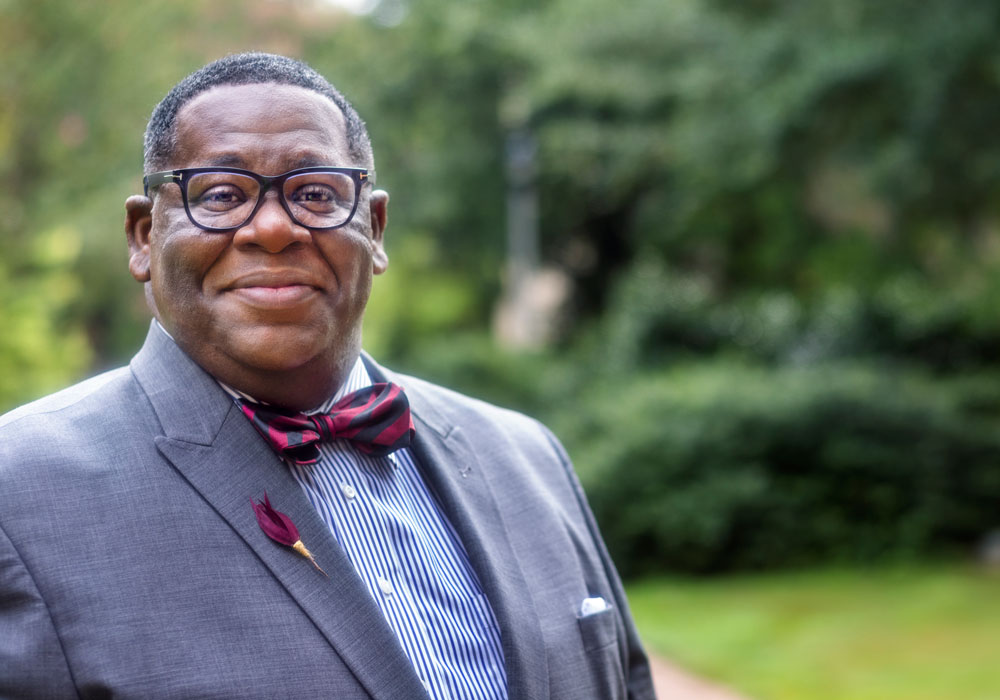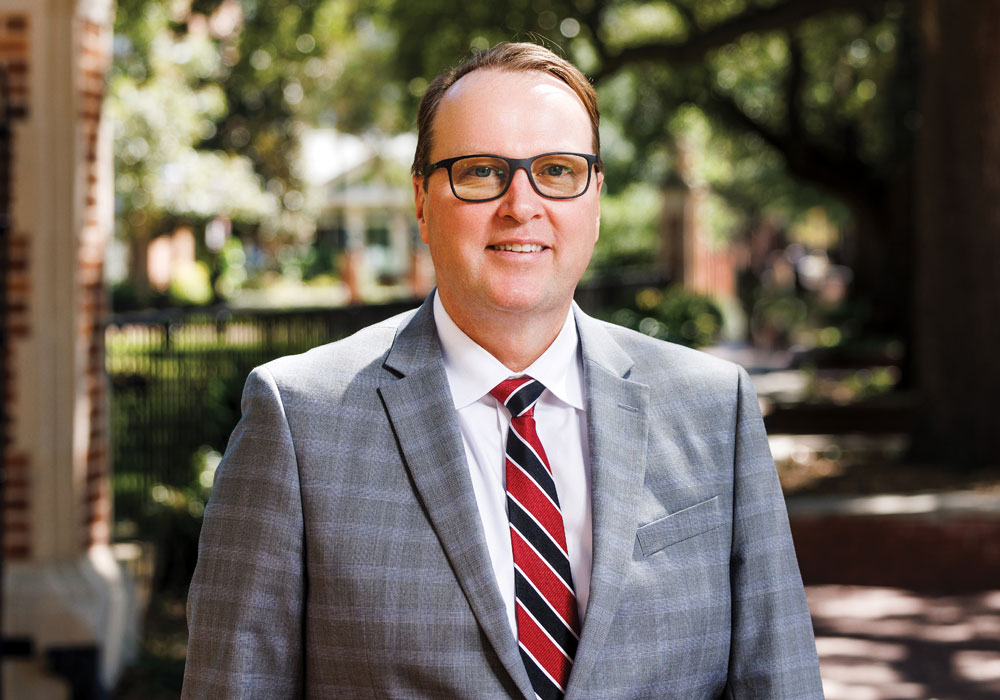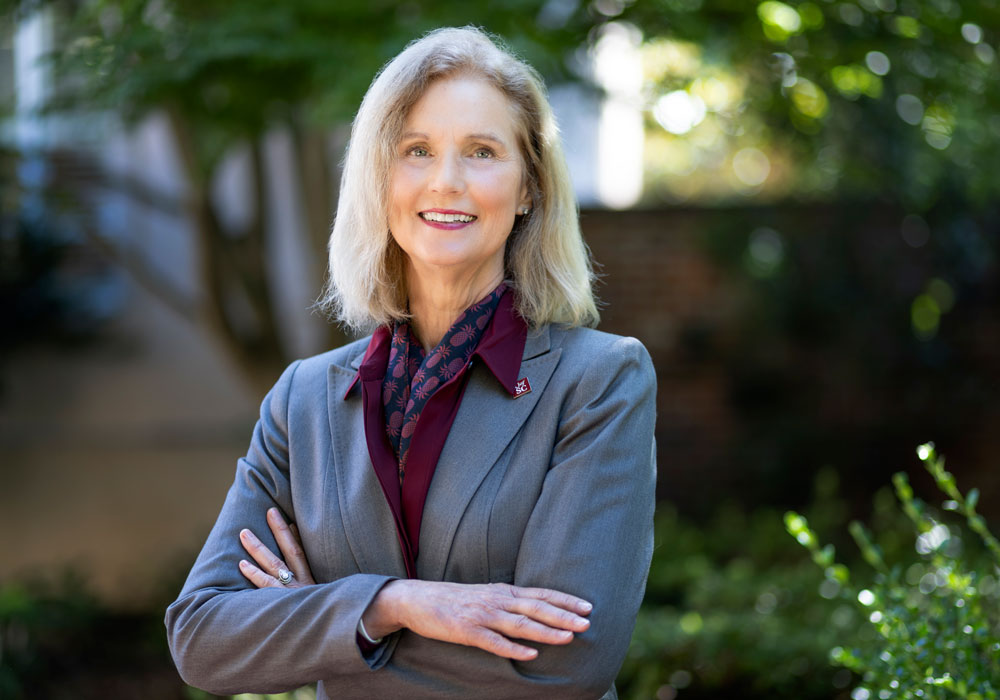Every freshman class has its share of first-generation college students — especially at a large flagship public university — and while experiences run the gamut, arriving on a college campus for the first time isn’t quite the same if you’re the first person in your family to do so.
But the road ahead for these students is far from untraveled. The University of South Carolina has welcomed first-gen students since its inception and over the years has produced countless graduates who have gone on to enjoy remarkable careers in just about every imaginable field.
Yet you don’t even have to leave campus to find these folks. Indeed, some of the highest-ranking members of USC’s administration have similar backstories. President Michael Amiridis and his wife, Ero, were both first generation students back in their native Greece. So are three members of Amiridis’ new executive leadership team. Ask around, you’ll find plenty of other first-gen success stories among our deans, our faculty and our staff.
No two first-gen stories are the same, but there are some common themes. For Rex Tolliver, USC’s new vice president for student affairs, the challenges of being first-gen tied directly to his financial situation — and lit a fire under him as he was considering his course of study. When he enrolled at Louisiana State University, he had his eye on a career in politics. But then a chance encounter made him reconsider.
“I was in R.A. training and the hall director at the time said he had graduated in political science,” Tolliver explains. “I went immediately after that training to see my counselor. I said, ‘Look, I can't go all the way through college, graduate and be a hall director, if that's all you can do — I'm first-generation! I need a major where I can get a job and make some money!’”
He tells the story with a sense of humor — he’s not disparaging political science as a major or a career and he’s not knocking hall directors. He’s simply revisiting the mindset he had as a 19-year-old, first-generation college student and adding emphasis to underscore the importance he attached to career earning potential.
I missed being able to connect with students around the same things that benefitted me as a first-generation college student. That's really what drew me back.
“I was going to college with the help of student loans — my parents did not make enough money to send me to college,” he says. “And as a first-generation college student I had to look at everything in terms of making a living. I looked at all of my educational pursuits as an investment.”
Tolliver ultimately switched to finance, went on to law school and recouped that investment. But changing majors wasn’t a total reset. His experience as a first-gen student at LSU influenced his career path, bringing him back to higher education after a brief, three-year foray into the nonprofit sector.
“I missed being able to connect with students around the same things that benefitted me as a first-generation college student,” he says. “That’s really what drew me back. There’s something about the work that we do, knowing that you can help young people be their best — not help them be the best version of you or what you want them to do, but help them explore and discover who they want to be and then provide the resources to help them get there.”
In the small Icelandic village where Vice President for Research Julius Fridriksson grew up, higher education wasn’t really on people’s radar — and it was a formative experience.
It was also difficult, so much so that he dropped out of his first program. “Coming into a university was a daunting experience,” he says. “Nobody in my family had ever gone to college — not just in my immediate family, but even in my extended family, and we’re a big family. I was the first, and all the way through my master's, and even my Ph.D. program, I felt a little bit like a fish out of water.”
Initially enrolled in an economics program, Fridriksson found himself struggling to acclimate to an unfamiliar culture and it affected his confidence. “A lot of the students were the kids of bankers, and I thought I didn't fit in,” he says. “I was fine with the math, but I had a hard time relating to the culture, so I dropped out.”
Eventually, a mentor put him back on track for a college degree. Fridriksson played on Iceland’s junior national basketball team, and his coach, who was eight or nine years older and had himself gone back to college, encouraged him to take another shot at higher education.
It sometimes felt like nobody really gave us a chance. I think that a little bit of my drive comes from that. You feel like you constantly have to show that you can do it.
“Until I met him, university was like going to Mars for me,” he says. “Having somebody you admire tell you that you can do it, you start thinking, ‘Maybe I can do this.’ And then when I went to university, I did fairly well on my tests as an undergrad, and he said, ‘Hey, why don't you come to my lab and just check it out?’ So I went to his lab, and the rest was history.”
The professor, whose research was in hearing and communications, sparked Fridriksson’s interest. Several years and a couple universities later, he had a Ph.D. in speech and hearing sciences from the University of Arizona. He joined the faculty at the University of South Carolina in 2001, built out a massive research enterprise studying aphasia and went on to bring in millions of dollars in external funding from the National Institutes of Health.
Now, as VPR, Fridriksson sees his experiences as first-gen college student as a factor in his success — something that motivated him not just in school but throughout his career. He also speculates that while his own circumstances might be unique, he and others who had similar trajectories have something in common.
“My sense from talking to first-gen folks in academia, in general, is that we have a little bit of a chip on our shoulder because we came in being so green. It sometimes felt like nobody really gave us a chance,” he says. “I think that a little bit of my drive comes from that. You feel like you constantly have to show that you can do it. That's probably a common thread.”
When Provost Donna Arnett began her undergraduate career at the University of South Florida, she had her heart set on a career in medicine. To her parents, med school seemed like a financial reach.
“I wanted to be a physician,” she says. “But my family couldn't afford it, so when I came home to declare my pre-med major, my mom and dad, who required that I lived with them while I was at USF, said, ‘We can't afford to send you to medical school. Come up with another plan.’” That other plan ended up being nursing.”
As a first-generation student, sitting here as a VP and provost, I see the value of my education. We need to help our students and their families and our community understand the value of coming to the University of South Carolina.
In the long run, it was a great fit. She earned her nursing degree then parlayed that into a Ph.D. in public health and a career in academia that eventually led her to the provost’s office at USC. In the meantime, the experience of being first-gen made her extra-hungry for an education. As an example, she cites an elective she took at USF and how validated she felt when her work and her intellect were recognized.
“In my freshman creative writing course, I learned that I had a voice and that I love to create,” she says. “My professor would read out loud what I'd written, and it made me feel really special being a first-generation kid and hearing that kind of praise.”
She hasn’t forgotten the experience. In fact, as she and her colleagues in the president’s executive leadership team set the course for the university’s future, she looks back on her formative years as a sort of North Star — something to underscore the value of a college degree and of the university itself.
“We have to define our value added to society,” she says. “As a first-generation student, sitting here as a VP and provost, I see the value of my education. We need to help our students and their families and our community understand the value of coming to the University of South Carolina.”


